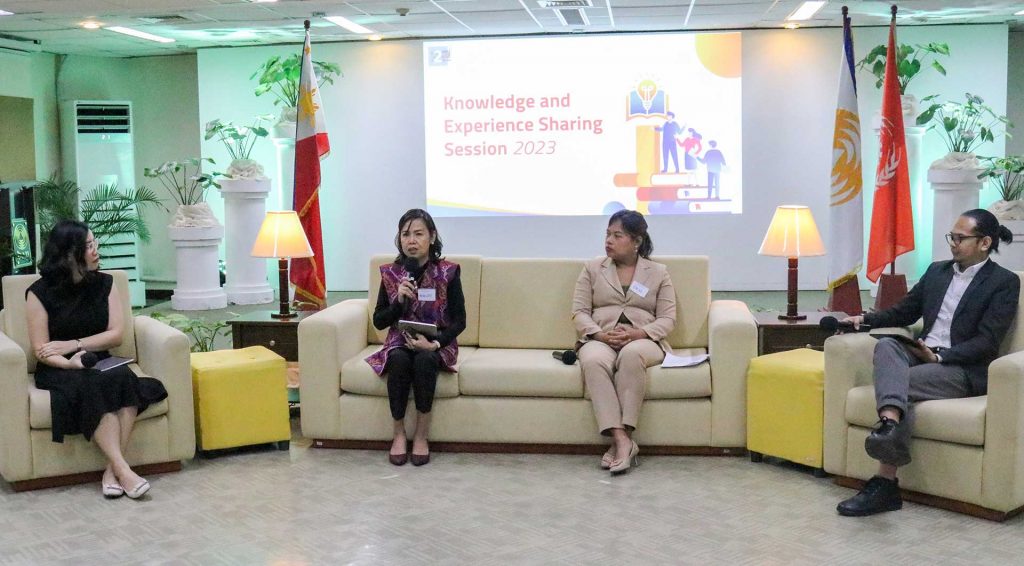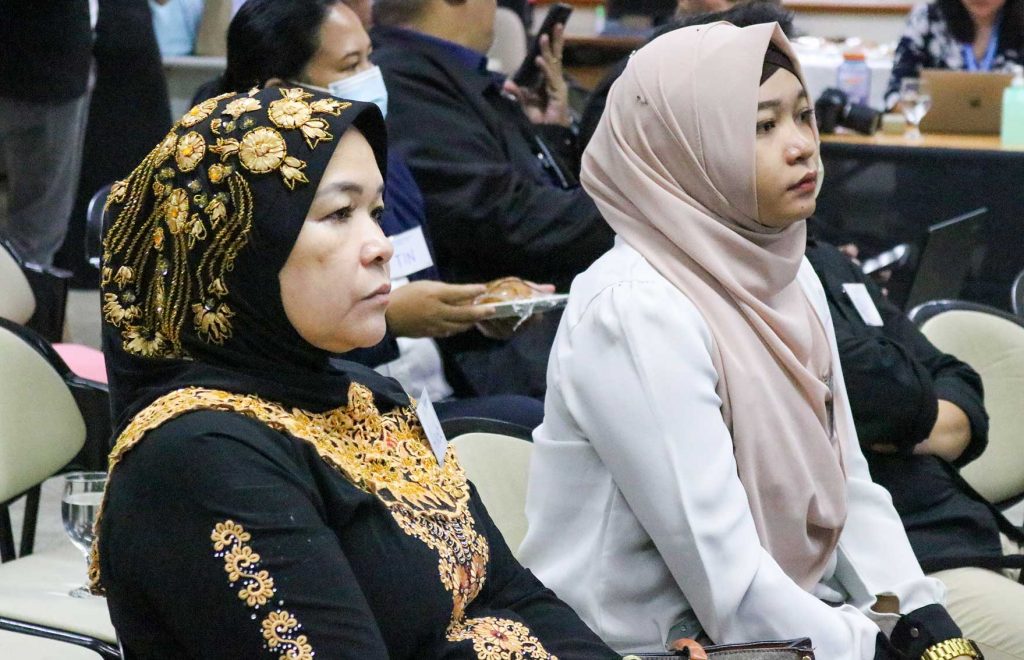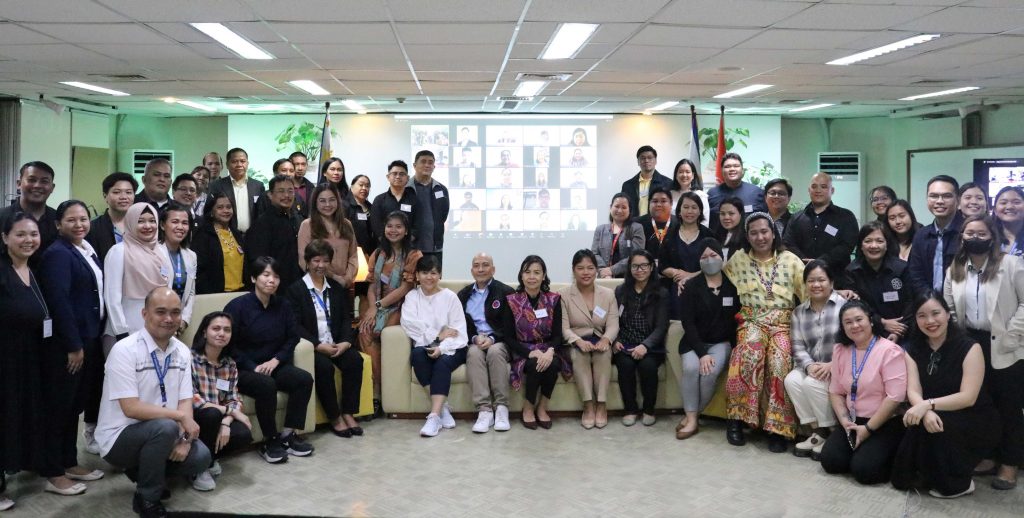
To culminate this year’s Development of Public-Sector Productivity Specialists Foundation Course (DPSPS-FC) and the Designing Citizen-Centered Public Services (DCCPS) program, 111 on-site and online participants gathered for the Knowledge and Experience Sharing Session on 11 December 2023.
The participants presented their Productivity Improvement Plans (PIPs) and Service Innovation Projects (SIPs) designed for their respective government agencies. They also provided updates linked to the implementation and adoption of their projects.
The PIPs ranged from automated trade systems for the agricultural sector to improved financial assistance distribution processes. At the same time, the SIPs were developed to improve services like providing student discounts in rail systems and free legal assistance to help resolve document corrections.

Agency representatives also had the opportunity to discuss the drivers and challenges they faced in pilot-testing their outputs. One of the participating agencies, the National Security Council, cited that the team pursued the idea of a Quality Management System to address the internal inefficiencies that could hamper and limit the service delivery to other stakeholders.
Many teams mentioned that some challenges were finding a common time for meetings with stakeholders and ensuring effective communication and coordination.

The teams also had their advice to potential participants of the two programs. They mentioned that getting the management and stakeholders’ buy-in and planning are crucial for mobilizing productivity for these initiatives.


In his opening remarks, Center for Excellence on Public-Sector Productivity Program Director Peter Dan Baon expressed his gratitude to the attendees and participating agencies for their commitment to their projects.
“It’s essential to note that these programs are more than just training sessions. They represent our shared vision aligned with the Philippine Development Plan 2023-2028. Through them, the Development Academy of the Philippines endeavors to play a pivotal role in refining and redefining the contours of our public sector’s productivity,†said Dir. Baon.
The DPSPS-FC equips agency representatives with specialized training in planning, problem-solving, measurement, and analysis, ultimately aimed at improving organizational productivity.
The DCCPS course aims to assist government agencies in crafting client-centric solutions. It provides coaching and guidance throughout important stages such as information gathering, idea development, and testing.

